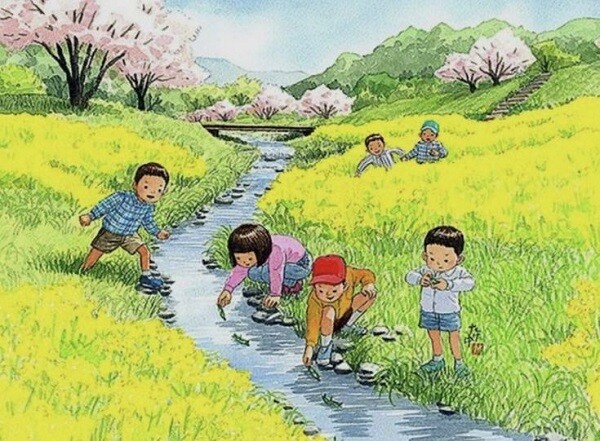This “inner universe” state is closely tied to the actions of parents.
Sometimes, a small, unintentional action or a random comment from a parent can silently harm a child’s mental health without them even realizing it.


Reduce academic and life stress on children
In today’s fast-paced, high-pressure world, everything is layered and complex. Life has become more complicated than ever, especially in the field of education. Education, which should be a haven for development and creativity, has been caught in the whirlwind of “degeneration”. The competition is getting fiercer, making learning a never-ending race.
The weight of a child’s school bag increases, as do the number of tutoring classes. Children not only have to acquire knowledge but also develop “survival” skills to pass exams. Weekend leisure time is now divided into segments by various hobby classes, from sports to arts, no longer pure pleasures but mandatory tasks.
Daily life is overshadowed by academic pressure. Children are forced to engage in fierce “learning battles” with others, constantly striving not to fall behind. Sometimes, they don’t even care about their own happiness.
We often notice that during family gatherings, relatives chat about the children’s academic results. Many parents proudly boast about their children’s top rankings. Other mothers quickly remind their children to focus on their studies, as if that’s all they need to do.
According to an expert, effective education is not about following others or focusing on scores and rankings. Instead, parents should respect their children’s personalities and independent choices, encouraging them to pursue their passions and interests. Let children understand that success is not only measured by grades but also by emotional development, social skills, and positive character traits.

Reduce academic and life stress on children

Encourage children to explore and experience
Children’s passion for life lies in the little things. Sometimes, a careless word or a small action from a parent can blow away the flame of enthusiasm in a child’s heart. Children are very sensitive and easily influenced by their surroundings. A mocking comment, an unkind glance, or even indifference can make them feel hurt, leading to a loss of excitement and curiosity about the world.
In a child’s eyes, the world is a giant treasure chest filled with surprises, and new and exciting things await discovery everywhere. Each new experience, whether it’s a butterfly flying by or a falling leaf, feels like a new chapter in their lives. This curiosity is what drives them to learn and grow. Therefore, parents should provide an environment that encourages free exploration and experiences, rather than imposing limitations.

Encourage children to explore and experience new things.
Parents should relax and refrain from scolding. When something goes wrong, respect your child’s interests, no matter how silly or insignificant they may seem to adults. These interests are the building blocks of their character and passions. Encourage them to be brave explorers, ready to face new challenges.
Whether they succeed or fail, each attempt teaches them valuable lessons. Parents with stable mental health help children develop a sense of responsibility and problem-solving skills. When children see their parents calm and peaceful, they feel safer expressing their emotions and thoughts.

Be gentle, encouraging, and supportive
A child’s growth journey is like a mirror, and a parent’s reflection is the most important image in it. Children absorb and reflect what they see and hear from their parents.
For example, when a parent says, “Why are you so stupid?” or “Can’t you do anything right?”, the child internalizes these negative messages and develops a sense of inadequacy.
These comments can lead to unstable mental states and affect their confidence in handling daily tasks and academic challenges.
Therefore, parents should communicate with their children gently, encouragingly, and supportively. A simple word of encouragement can make a significant difference in how a child perceives themselves.

Be gentle, encouraging, and supportive.
Even when complaining, be mindful of your tone and avoid hurtful words. Pay attention to your child’s small progress and celebrate it as a sign of development. Also, don’t forget to give them a big hug to show your love and appreciation.
Parenting is a challenging yet magical journey. Each day presents opportunities for parents to express their love and support. Encouragement from parents can help children build self-confidence, develop patience, and learn to cope with failure.




































